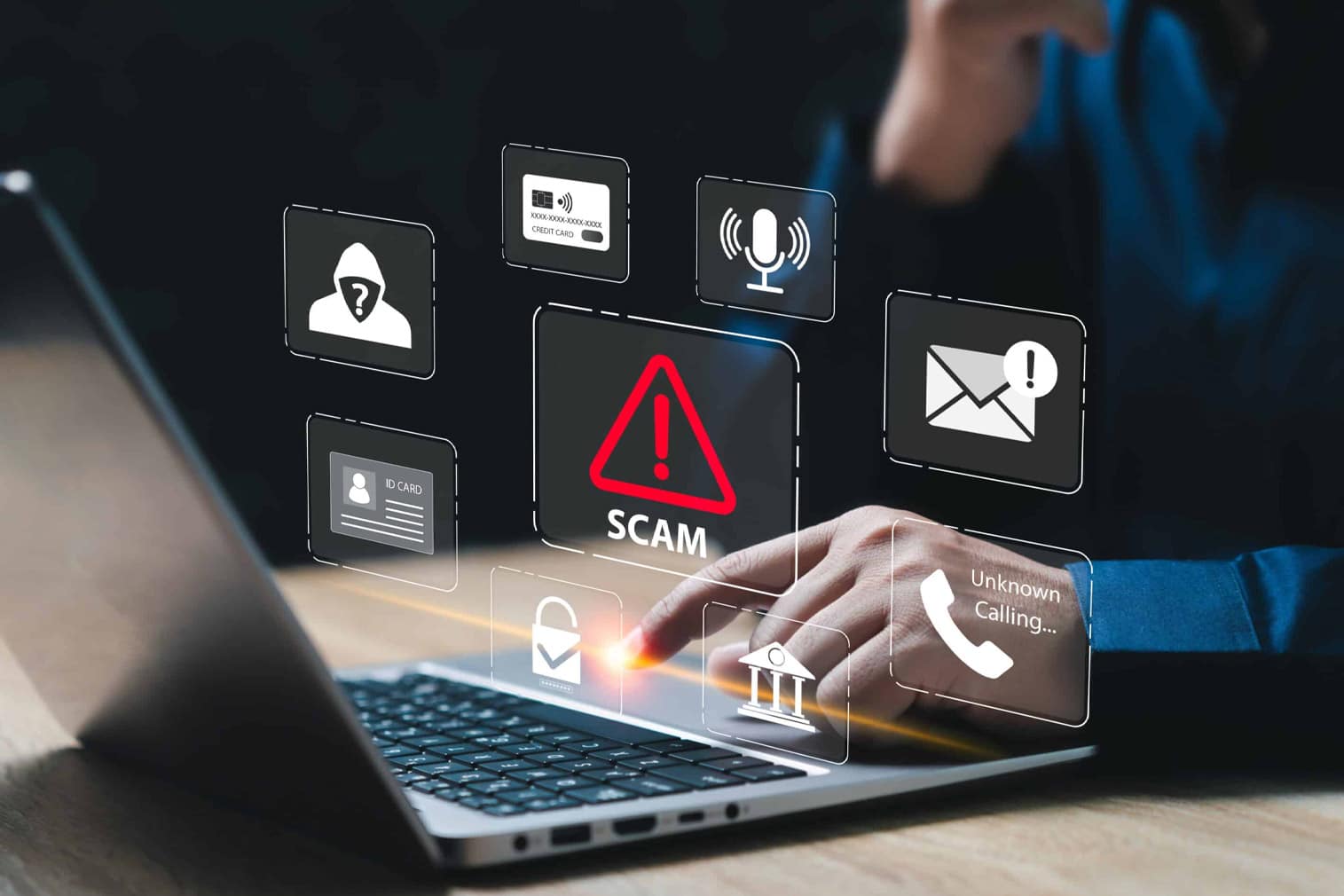How to Avoid Forex and CFD Scams in 2026: A Trader’s Guide
Where there’s hype and big opportunities, there are usually those looking to gain through unethical means. When it comes to the trading world – which is becoming increasingly popular – scammers are constantly inventing new ways to trick traders. Falling for scams could cost you more than your profits, it could cost you your initial investment and the confidence you built up to trade effectively.
That’s why knowing how to project yourself is more important than ever. Keep reading to learn how to spot red flags, safeguard your investments, and trade confidently with peace of mind as we move into 2026.
Why Forex and CFD Scams Are on the Rise
The online world can be where opportunities are found, but it’s also filled with pitfalls. With people spending an average of six hours and 38 minutes online every day, it’s no surprise that scammers know exactly where to look for their next target.
Those interested in trading are also starting out at a younger age as there is now increased accessibility through online platforms. There is more free information online for them to learn and get started and the legal age to open a brokerage account is 18 – giving young people who are influenced by flashy lifestyles online, the perfect package to start trading. They may have what they need to start, but can they tell a scam from a genuine broker?
Scammers count on the answer to this question being no, and that is why they target newcomers to trading.
Common Types of Forex and CFD Scams
You don’t want to get scammed but you are not sure what to look out for? Here are a few types of common scams to put on your radar:
Fake brokers/ unregulated platforms: Websites that pretend to be legitimate trading brokers. They often use professional-looking pages, fake reviews, and copied branding from real companies. They boast about easy withdrawals and high leverage, but in the end, they give you nothing in return for your investment.
Avoid getting sucked into these scams by checking if a broker is regulated by a recognised authority (like FSA). Verify the license number from the regulator’s official website.
Ponzi schemes and fake investment opportunities: Beware of those promising high, guaranteed returns, like the EminiFX case in 2023, when thousands of investors lost millions after being promised “passive weekly returns.”
Avoid becoming a victim of Ponzi schemes by avoiding brokers who promise guaranteed profits or zero risk investments.
Signal sellers or ‘guaranteed profit’ schemes: This is another one that guarantees profits but this time the profits are specific to exclusive trading signals or insider tips. They may show fake trading screenshots or testimonials to reel in traders, but once they have paid to get in, the signals are of no use and profits are nowhere to be seen.
Avoid any claims of guaranteed accuracy and do your research before investing a penny to make sure the broker you want to trade with is legitimate.
How to Protect Yourself from Scammers
Knowing that it is a scam is only half the battle, the other half is to protect yourself from it. The good news is that, apart from the ways already mentioned, there are other means to stay one step ahead of fraudsters.
Double-check websites and communication channels: Protect your personal and financial information: Never share your trading account passwords, ID documents, or bank details outside secure, verified platforms. Scammers might ask for this information under the guise of verification or support. Use strong, unique passwords and enable two-factor authentication whenever possible.
Test before you trust: Start small. Test the broker’s platform, withdrawals, and customer support before committing significant funds. A reputable broker will never pressure you to invest more than you’re comfortable with.
Keep learning and stay updated: Scammers are always evolving, so continuous learning is your best defense. Follow updates from regulators, read credible trading blogs, and join communities that promote transparency and verified trading practices.
Dealing with a Scam
If you suspect you’ve been scammed, act quickly. Stop all contact with the platform or person, gather all communication and transaction records, and report the incident to your local financial authority or regulator. If you made payments via bank or card, contact your provider immediately to try and reverse the transaction.
Change your passwords and monitor your accounts for suspicious activity. Always be cautious and protect your information.
Best Practices for Safe Trading in 2026
Take control of your trading journey with these key actions in 2026:
Verify before you trade: Always check that the broker you plan to trade with is regulated and has a strong reputation.
Start small, scale smart: Test strategies and platforms with manageable amounts before committing larger sums.
Protect your data: Use strong passwords, enable two-factor authentication, and never share sensitive info outside trusted channels.
Stay educated: Keep up with market news, regulatory updates, and verified trading insights.
Question guarantees: If someone promises “sure profits” or “zero risk,” pause and then run away from unrealistic promises.
Plan your trades: Set clear goals, limits, and exit strategies before entering any position. This helps protect both your money and your confidence.
Actively monitor: Regularly review your accounts, transactions, and investments to spot unusual activity early.
Trading does offer incredible opportunities, but it also carries the risk of being exploited by scammers. So stay aware of how to avoid scammers, make it a habit to educate yourself, protect your data, and safeguard your investments so you can end 2025 with knowledge and be prepared for your 2026 trading.

